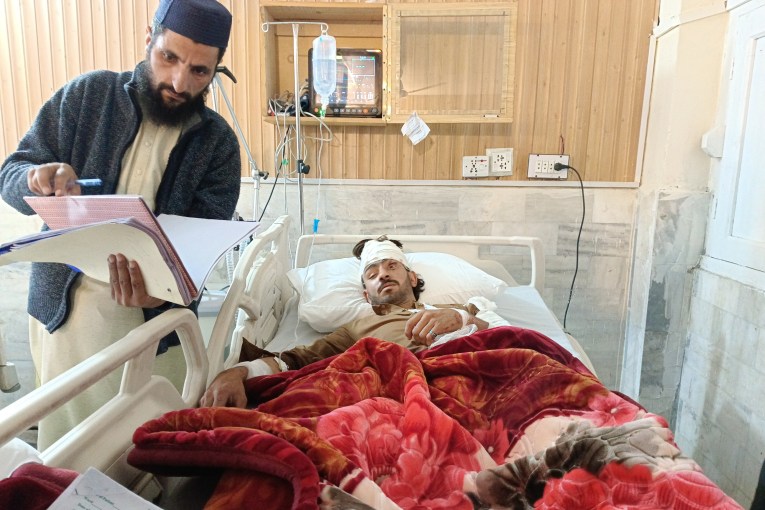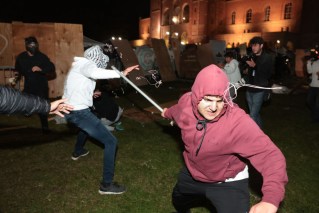Canberra imposes sanctions on Russian aggressors

Australia has joined its European and American allies in slapping targeted sanctions on Russia over its military aggression in Ukraine and annexation of the Crimean peninsula.
Foreign Minister Julie Bishop told parliament on Wednesday that Australia would impose economic sanctions and travel bans on individuals who had been “instrumental in the violation of Ukrainian sovereignty”. Labor supported the bans.
Overnight, Russian president Vladimir Putin signed a treaty that enabled Crimea to become a part of the Russian Federation. It was the first annexation of a European country’s territory since World War Two.
The move came three weeks after unmarked Russian soldiers took over the Crimean parliament, and a plebiscite at the weekend in which a reported 97 per cent of those who turned out voted to secede from Ukraine and join Russia.
But Ms Bishop said the vote, which took place with Russian soldiers on Ukraine soil, did not comply with international law. “International law does not allow one state to steal the territory of another in a referendum that cannot be considered free or fair,” she said.
She said Australia was moving “in solidarity and support of a rule-based international order”.
Ms Bishop also referred to the death of a Ukrainian soldier during a confrontation with masked armed militants at a military facility in the regional capital of Simferopol.
Ms Bishop spoke overnight about the situation with English foreign secretary William Hague and also Ukraine’s interim foreign minister.
Mr Putin, in a long speech to both houses of the Russian parliament, celebrated the return of a territory that was transferred to Ukraine by Soviet leader Nikita Khrushchev in 1954, but which Russia has long seen as rightfully its own.
“Crimea is a symbol of Russian war glory, of Russian traditions, language, beliefs,” he said to thunderous applause.
US vice-president Joe Biden said Russia’s move was “nothing more than a land grab”.
Australia’s measures are in line with those taken by the United States, the United Kingdom, Canada, the European Union and some other countries.








